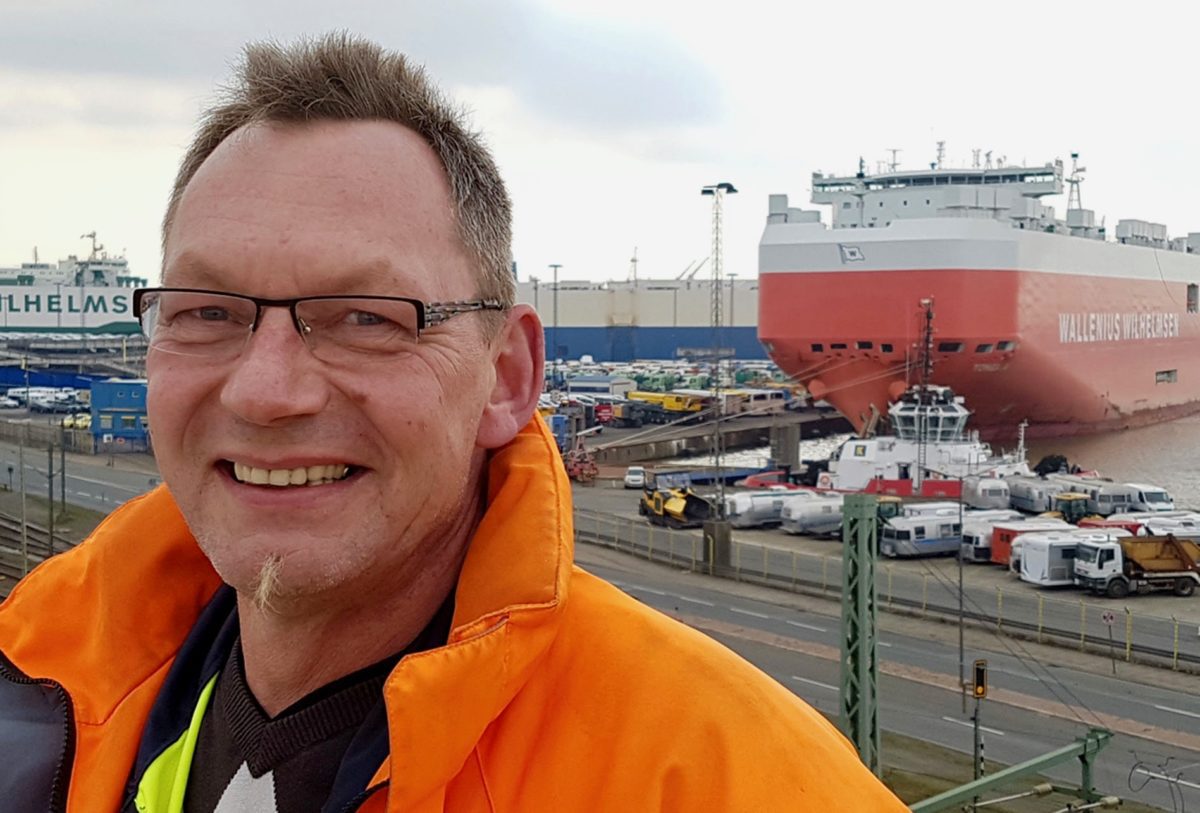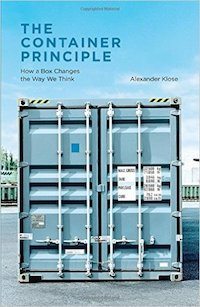Maersk Contests Transnet’s Pick for South African Port Partner
By Paul Burkhardt (Bloomberg) — A.P. Moller – Maersk A/S is contesting a process held by South Africa’s state logistics firm Transnet SOC Ltd. to find a partner to develop sub-Saharan...


Michael von Harten in the German port of Bremerhaven Photo by David Rocks/Bloomberg
When Michael von Harten started loading cars onto ships in the German port of Bremerhaven 27 years ago, the facility handled some 700,000 vehicles a year. That number has since surged to 2.1 million, fueled by a dramatic increase in trade that has created thousands of jobs and shored up the local economy.
In a town with few options, Von Harten is concerned President Trump could threaten Bremerhaven’s main source of prosperity.
The new U.S. president has called on Germany to rein in its 253 billion euro ($272 billion) trade surplus, saying he may impose stiff tariffs on imported goods. As Angela Merkel prepares for a meeting Friday at the White House — the chancellor’s first encounter with Trump after months of verbal sparring over trade issues — Germans want her to push back against any restrictions that would hurt their livelihood and threaten their country’s economy.
“I worry about someone like Trump banging his drum and slapping tariffs on our exports,” von Harten says as he surveys the Bremerhaven quays, where a half-dozen ships the size of floating warehouses are being loaded with VWs, Porsches, Audis, BMWs and other jewels of German manufacturing. “Of course we would feel that.”


Relations between the two countries appeared to warm slightly on Thursday as U.S. Treasury Secretary Steven Mnuchin and German Finance Minister Wolfgang Schaeuble met in Berlin. “It is not our desire to get into trade wars,” Mnuchin told reporters, acknowledging that Germany — as a member of the euro zone — doesn’t have control over its currency.
Even so, Germany’s economy relies heavily on foreign trade, and Bremerhaven more than just about any place in the country: a quarter of the people in the state hold jobs directly or indirectly related to shipping, according to the local port operator, Bremenports. Keeping those jobs intact is critical, with unemployment more than double the national average in what by some measures is Germany’s poorest city.
The port which eventually evolved into a city was founded in 1827 after the harbor at Bremen – 60 kilometers upriver – started to silt up. It grew rapidly as German industry took off and everything from factory equipment and textiles to beer and bananas crossed its docks.
For decades in the 19th century, it was also Germany’s primary port for emigrants; On October 19, 1885, Donald Trump’s grandfather Friedrich Trump embarked at age 16 in steerage on the Norddeutscher Lloyd Eider, sailing from Bremerhaven to New York, local records show.
Bremerhaven was almost totally leveled in one night of Allied bombing in September 1944. But it bounced back, growing into Germany’s No. 2 port, after Hamburg, even though a collapse of the fishing and shipbuilding industries in the 1970s chipped away some of its past prosperity.
Cars were first shipped from Bremerhaven in 1957, and the city has become Germany’s biggest port for autos — the country’s top export. The complex stretches across an area the size of 240 football fields, a dense web of railway sidings, docks, and parking garages where tens of thousands of vehicles await shipment to markets from Seoul to Sydney to Seattle.
Trump’s threats of higher tariffs on imports worry Bremerhaveners like Wolfgang Stoever, marketing director at BLG Logistics, the company that operates much of the port. Stoever says that before the U.S. election last November, BLG had expected a modest increase in car shipments to and from the U.S. in 2017. After Trump’s election he scaled back forecasts — 40 percent of the harbor’s auto exports go to the American market — and instead expects the number to remain flat this year.
“There’s clearly still uncertainty,” Stoever says. “We’re not seeing any significant revival.”
Of course, there are two ways to trim a country’s trade surplus: Cut exports or increase imports. If Germany addresses the issue by buying more goods abroad, Bremerhaven could benefit. Already, for every three Audi A8s or Porsche 911s shipped from its docks, one BMW X6 (manufactured in South Carolina) or Mercedes GLS (built in Alabama) is imported. And on the quays at Bremerhaven, you’ll find scores of John Deere tractors, Airstream camping trailers, and Caterpillar earth-movers made in the U.S.
That’s a point Merkel is likely to make when she meets Trump. On March 13, she said U.S.-European commerce is “advantageous for both sides,” and advisers say she plans to lay out her vision of a global trade agenda — a topic that’s sure to come into sharp focus as campaigning picks up for September elections in which Merkel is seeking a fourth term.
The port, which is controlled by the state of Bremen, is confident enough in its outlook to push ahead with a 30 million euro expansion of the railyards alongside the docks. The project, which will double the number of tracks, to 16, will serve both the auto operation and the adjacent container port, which is the fourth largest in Europe.
Martin Guenthner, who oversees economic affairs in the Bremen government, says he’s optimistic that the state will weather whatever storms may be brewing across the Atlantic in Washington.
“Bremen’s merchants will search for new markets and niches,” Guenthner said in an email. “While economic ties with one area might suffer, they can grow stronger with another.”
©2017 Bloomberg News
Join the gCaptain Club for curated content, insider opinions, and vibrant community discussions.


Join the 105,936 members that receive our newsletter.
Have a news tip? Let us know.
Access exclusive insights, engage in vibrant discussions, and gain perspectives from our CEO.
Sign Up




Maritime and offshore news trusted by our 105,936 members delivered daily straight to your inbox.



Essential news coupled with the finest maritime content sourced from across the globe.
Sign Up